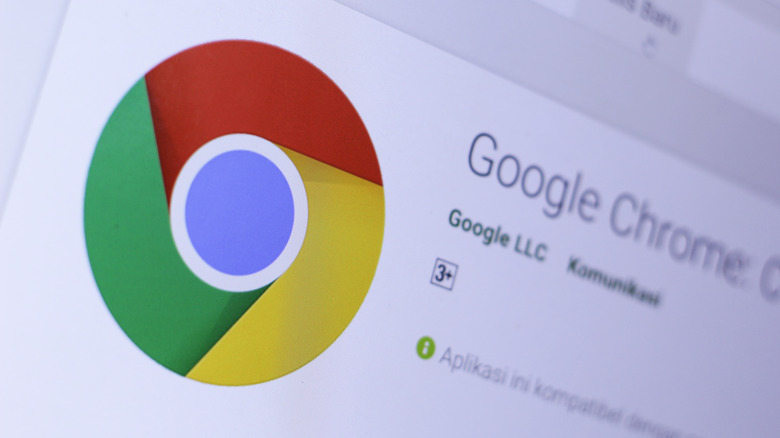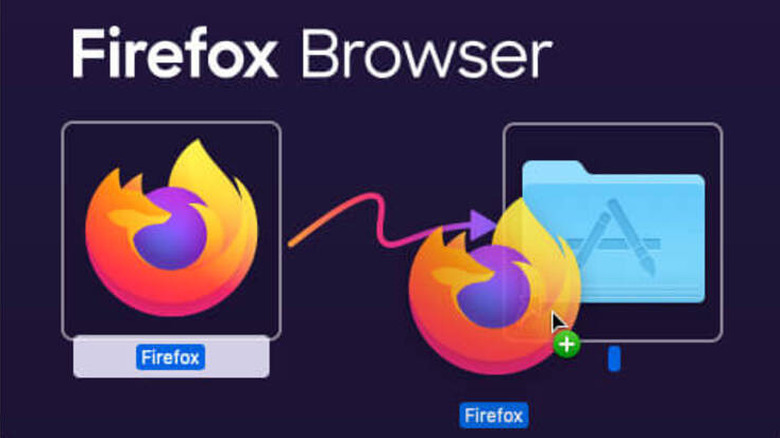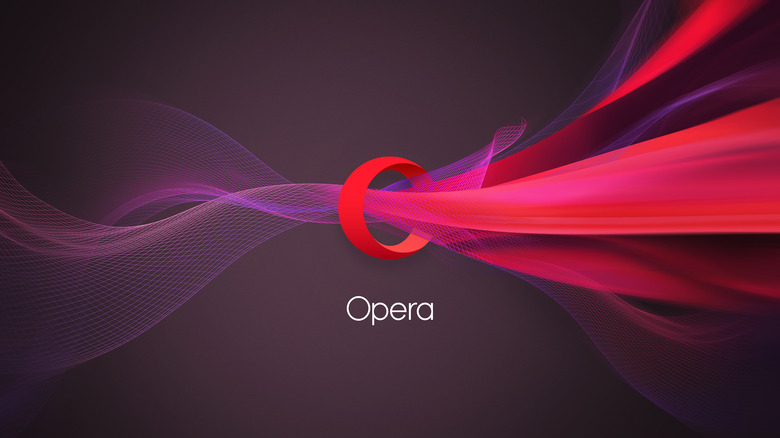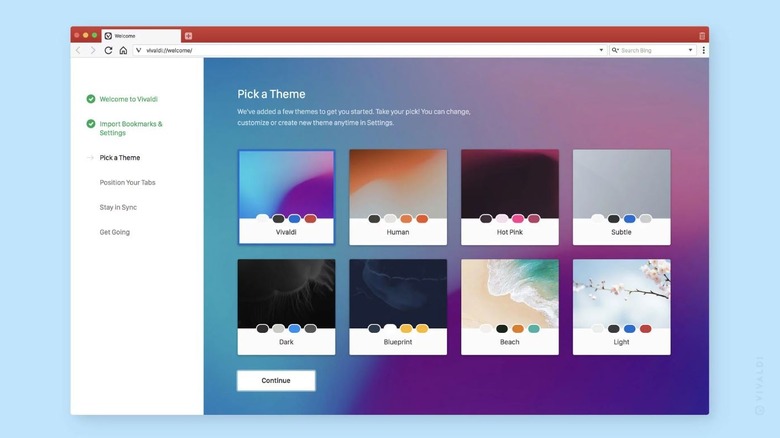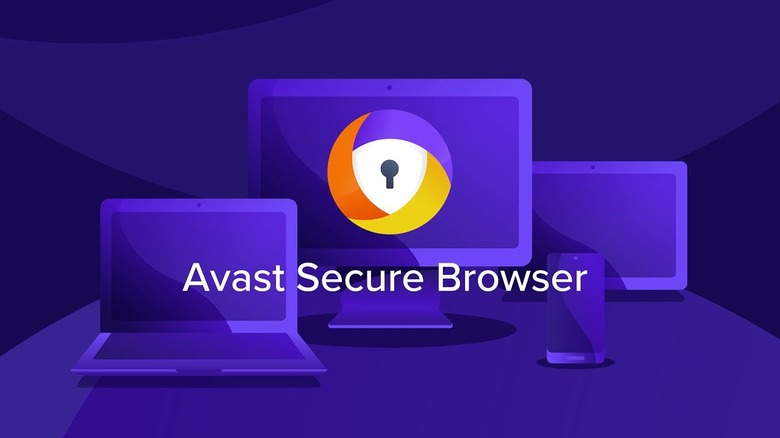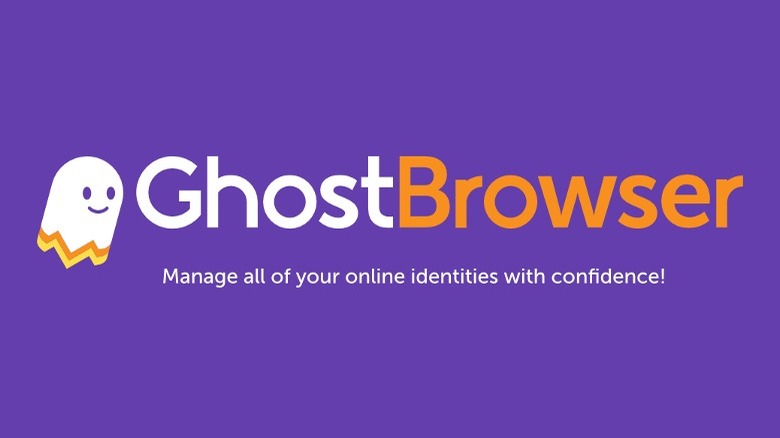8 Browsers Worth Trying On Mac That Aren't Safari
While computers are capable of a vast array of functions, outside of work hours they're mostly used to surf the web. That means that much of the time you spend on your Mac is filtered through a web browser. If you think of web content as the decorations inside your home, the browser is your house's frame. It defines, at least to some degree, how things are organized and how they appear.
Your Mac (and any other internet-capable Apple products) comes standard with Apple's own browser: Safari. It's a perfectly good browser and designed to work well with your Mac, but it might not be the perfect solution for every online activity or interaction.
It's worth noting that some of your Mac's functionality is only available when using Safari, and you may lose out on features like Handoff when using a third-party browser. We don't recommend that you go and delete Safari in favor of another browser, but adding a second or even a third browser to your setup could offer a wider range of features for all of your online activities.
Chrome
Google's Chrome browser probably needs no introduction. If you've spent any amount of time online over the last decade, it's likely that you've used Chrome. It is far and away the most popular browser, accounting for roughly 65% of the market. Safari comes in a distant second with nearly 19%. That familiarity is one of Chrome's greatest strengths.
If you're making the switch from a Windows PC to a Mac for the first time, you might want to continue using the browser you're accustomed to, with all of the favorites, features, and settings you've come to know and expect. Downloading Chrome for your Mac is quick and easy (just type Chrome into the search bar, click the first link, and follow the prompts) and provides easy access to any Google-related accounts like Gmail.
If Safari's layout is too foreign and you're longing for something you already know, there's nothing better than Chrome. Of course, Chrome can also be resource hungry, and some users have reported the browser slowing down their machine's performance. Still, if you mostly use your Mac for casual activities and browsing, you're unlikely to notice.
Firefox
While Mozilla's Firefox browser has enjoyed varying levels of popularity during its lifetime — at its peak, it accounted for more than 30% of the browser market; today Firefox holds only about 3% — it is still a well-known and trusted browsing solution. It's a free and open-source browser which, despite its fall from grace, remains the fourth most popular browser across all devices.
Firefox provides reliable privacy, security, and ease of use, with a user interface that will be intuitive, even if you've never used it before. Like other browsers, Firefox can store favorites and add browser extensions to customize your online experience. Websites you visit are often displayed on the home page, giving you quick access to your favorite online haunts. Firefox also offers autoplay blocking for ads and other video content and Tracking Protection, which stops trackers from following your web traffic to gather data.
There's also a built-in screenshot tool, which allows you to capture whatever is on your screen. That includes screengrabs of video content from your favorite streaming services, something most browsers including Safari won't do.
Brave
The Brave browser seeks to prioritize user privacy, security, and autonomy. It was initially built on software called Muon, favored for its security, but eventually moved to Chromium. This means it is pretty familiar if you've used any other Chromium-based browsers before. Despite being only a few years old, Brave has gathered more than 22 million active daily users, thanks to quick performance speeds and its philosophy around advertising. The latter of which has been the subject of some controversy since its launch on November 13, 2019.
The major advantage of using Brave is its built-in ad blockers for both trackers and ads. The idea is to give the user as much privacy and control over advertising as possible. That's also what has driven controversy over the company's business model. Brave innately blocks ads displayed on websites, which deflects revenue from the sites you're visiting. While that's a problem for content publishers, it's what all ad blockers do, and the industry has largely turned a blind eye to that.
Where Brave potentially takes things too far is by offering its own in-house advertisements as an alternative. Users can opt into ads that earn them Basic Attention Tokens (BAT) in exchange. Those tokens can then be used as a cryptocurrency or to purchase goods and services from registered websites. You're still getting ads, just different ads, and you're potentially upsetting the online economy in the process. Use responsibly.
Opera
Opera is yet another third-party browser built on Google's open-source codebase. As a result, it offers a familiar user interface coupled with reliable security and privacy. But what makes Opera unique isn't the ways in which it's the same, but the ways in which it's different.
If you primarily use the internet to surf the growing number of social networking sites, and if you use the chat services inside those networks, Opera can streamline the way you communicate. Usually, checking and responding to your messages means opening each site individually, which can be time-consuming and laborious. Opera can put your social media chat boxes into a menu on the left side of the screen, giving you access to them without having to visit each of their associated sites.
If you find that the hours have wound away while you're scrolling through tweets or swiping through videos, and your battery is sucking on whatever the battery equivalent of gas fumes is, Opera has a solution for that, too. The browser's battery-saver mode can extend your overall battery life by paring down how much power surfing requires. If you have the opposite problem, you can also activate Opera's Turbo mode, which uses more power than usual but speeds up load times. Probably best to use that one only when you're plugged in.
Edge
There was a time when Internet Explorer was synonymous with the internet. It came installed as a standard feature on every Windows PC, and for a while Windows PCs were pretty much the only game in town. It never even occurred to most of us that you could get online any other way. But time hasn't been kind to Internet Explorer. What was once the preferred, and often only, online portal has survived long enough to become a joke.
With the release of Windows 10 in 2015, Microsoft launched the successor to Internet Explorer in their new browser: Microsoft Edge. Despite being a totally new browser, many users saw it as little more than Internet Explorer with a new coat of paint. However, in 2018 the browser received an overhaul, moving from Microsoft's own proprietary codebase to Chromium.
It uses less RAM than other popular browsers and has a number of unique features. One favorite is the ability to save various types of information including URLs, text, and images inside a "collection" for later reference. It's like bookmarking with context. Edge also has some great accessibility features, like the ability to read aloud content from a webpage. Edge isn't your grandpa's Microsoft browser, and it might be worth revisiting.
Vivaldi
These days, there are more browser options than ever, as evidenced by the fact that you're here looking for alternatives to the browser you were given. Still, in spite of the crowded browser landscape, many browsers feel like carbon copies of one another most of the time. That's not necessarily a bad thing, it means you can jump online with a minimum of hassle, regardless of the browser. But it might also mean that we're missing out on a better way, in favor of what we're used to.
Vivaldi is the brainchild of Opera's former CEO and aims to shake up the browser space by offering something totally different than other popular browsers. Vivaldi is built on Chromium's codebase, so all of your favorite Chrome extensions should still work. Otherwise, Vivaldi offers a very different user interface.
After downloading, you'll be asked to customize the browser by choosing the theme that most calls to you. In addition to the typical light and dark themes, you'll also find a number of colorful options. Next, you can choose where you want your tabs to be. You can put them at the top, like other browsers, or tuck them at the bottom or at either side. You'll also find a sidebar of tools that includes bookmarks, a reading list, and a note-taking tool. You'll also see all of your open tabs and a list of recently closed tabs, in case you need to return to them.
Avast Secure Browser
Avast is a respected name in the antivirus and malware space, but if you're surprised to see its name next to a browser offering, you're not alone. The browser got its start as a bonus offering, called SafeZone, in paid subscriptions to Avast's antivirus software. Later, it was added to the free version as well, as an optional download when you installed the antivirus software. You can also download the browser directly from the Avast website.
Later, SafeZone moved to Chromium's codebase and rebranded as Avast Secure Browser (ASB). Because it is built on Chromium, it is compatible with most Chrome browser extensions. ASB also offers built-in ad blockers and protection from trackers and other malicious online actors. The browser achieves that protection by encrypting your IP address and online activity with a built-in VPN, which protects you even when you're on open Wi-Fi networks, according to Avast.
ASB also offers a built-in video downloader plug-in which allows users to pull videos you are actively watching from a number of websites and services. If you're looking for a familiar browser with a handful of cool features and enhanced protection, the Avast Secure Browser could be it.
Ghost Browser
Ghost Browser sets out to solve a very specific problem for a very specific type of internet user. If your work (or your leisure) involves using multiple accounts for the same social networking site or online service, then Ghost Browser makes accessing and using those accounts easier than ever.
Most browsers are designed to store your login information in order to streamline your experience. There's no reason for you to need to enter your login and password every single time you want to access Twitter or open your email. However, if you run multiple Twitter accounts, and need access to multiple email inboxes, or something similar, you're likely to be frustrated. Most sites don't like letting you run multiple instances in the same browser at the same time.
There are workarounds, like using a different browser for each instance or using incognito windows which don't store your information. Or, you could use Ghost Browser. It silos each session so you can open multiple accounts on the same site at the same time, without any trouble. You also have the option to save particular sessions as projects, so you can return to them at a later date. It's able to do that because each session retains its own unique login information and cookies. If you want to browse without even your browser knowing what you're doing, Ghost Browser is the move.

